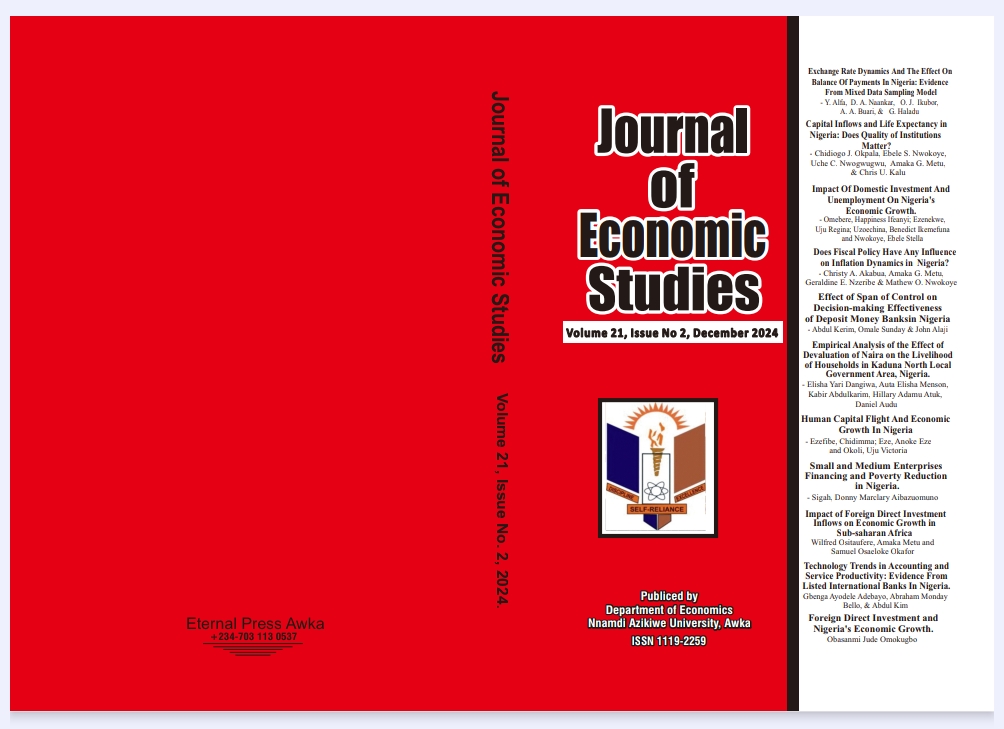IMPACT OF DOMESTIC INVESTMENT AND UNEMPLOYMENT ON NIGERIA’S ECONOMIC GROWTH
Keywords:
Capital goods, economic growth, inflation rate, unemploymentAbstract
This study examined the impact of domestic investment and unemployment on economic growth in Nigeria for the period 1980 and 2022. The study employed the Autoregressive Distributed Lag (ARDL) bound test and the diagnostics tests to determine the reliability of the models and results obtained. The independent variables considered in the study are gross fixed capital formation (GFCF), unemployment rate (UNER), inflation rate (INFR), exchange rate (EXR), and interest rate (INR), while the dependent variable is economic growth proxy by real gross domestic product growth rate (RGDPgr). The findings revealed that gross fixed capital formation (GFCF) had positive and significant impact on the economic growth in Nigeria while unemployment had negative and significant impact on the economic growth in Nigeria. The study recommends the conscious accumulation of capital goods through budgetary provisions and aggressive pursuit of industrialization in order to generate more employment and reduce the negative impact of unemployment in Nigeria. As Nigeria charts its economic course, the study provides valuable insights for policymakers, guiding
the formulation of strategies that promote stability and pave the way for robust and sustainable economic growth.


